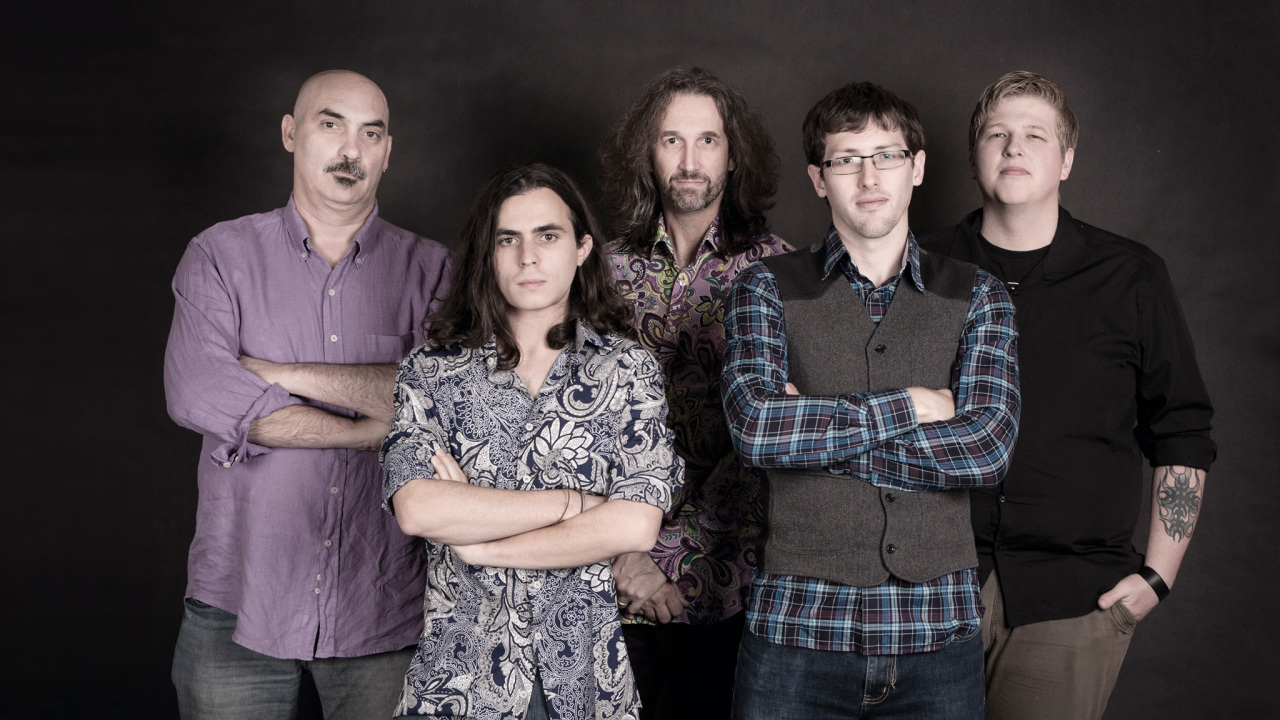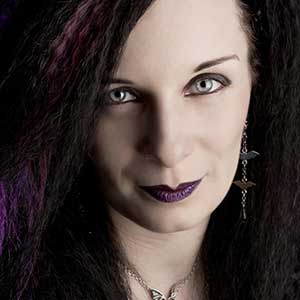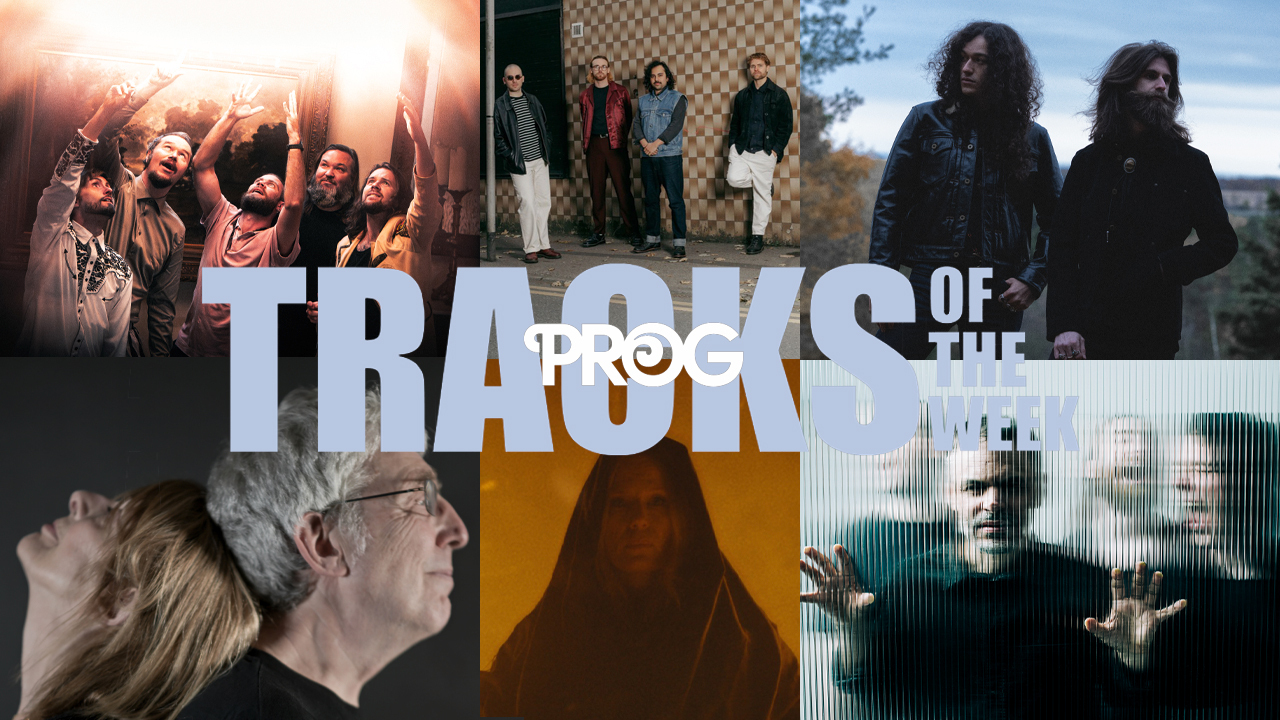Unto Us: Good Things Come...
It’s been a long time in the making but Unto Us have finally released their debut album. From swapping band tales to writing miserable lyrics, there’s just no holding these lads back.

Select the newsletters you’d like to receive. Then, add your email to sign up.
You are now subscribed
Your newsletter sign-up was successful
Want to add more newsletters?

Every Friday
Louder
Louder’s weekly newsletter is jam-packed with the team’s personal highlights from the last seven days, including features, breaking news, reviews and tons of juicy exclusives from the world of alternative music.

Every Friday
Classic Rock
The Classic Rock newsletter is an essential read for the discerning rock fan. Every week we bring you the news, reviews and the very best features and interviews from our extensive archive. Written by rock fans for rock fans.

Every Friday
Metal Hammer
For the last four decades Metal Hammer has been the world’s greatest metal magazine. Created by metalheads for metalheads, ‘Hammer takes you behind the scenes, closer to the action, and nearer to the bands that you love the most.

Every Friday
Prog
The Prog newsletter brings you the very best of Prog Magazine and our website, every Friday. We'll deliver you the very latest news from the Prog universe, informative features and archive material from Prog’s impressive vault.
When founding vocalist Huw Lloyd-Jones left Also Eden in 2009, he had one firm idea for his next project: to bring the fun back.
“Also Eden had begun to take itself more seriously and brought pressures that hobbies shouldn’t bring,” he explains. “There were pressures to up the level of quality gigs, pressures to do another album quickly… My personal life was also very pressured so there were conflicts with my time and I felt I was better out of it.” A six-month break was all he needed to recharge his creative batteries and start advertising for new bandmates. His ad was spotted by Leopold ‘Lee’ Blu-Sky, whose pop career with New Romantic glam band Viva was part of the short-lived Romo movement of the 1990s.
“It was such a traumatic experience that I gave up music for quite some time because I was so burnt out,” Blu-Sky reveals. “When I moved to the Forest of Dean, I decided I was ready to create music again. I originally had a surf punk band in mind but I heard an old prog song on the radio and it really took me back…That’s when I decided I would join a prog band – I knew absolutely nothing of the current scene!”
The two musicians met up and got on like magic. Lloyd-Jones, who’s also one of the organisers of Summer’s End Festival, gave his new bassist a crash course in modern progressive music and the pair got stuck into making new sounds. It wasn’t until keyboard player Alex White joined in 2012 that they began work in earnest on their first full-length album.
The Human Landscape was launched with an acoustic set at this year’s Summer’s End and was created during two years’ worth of trials and tribulations. Using their own studios, the band structured musical ideas around their elaborate demos which they would completely re-record whenever they had a new idea or member. “We recorded a whole albums’ worth of material with Andy Gelband [who’s now in Colourflow] on guitar but when we parted company and found Tom Ennis, we completely re-recorded the album again,” reveals Lloyd-Jones of just two of the musicians that Unto Us have lost and gained in their relatively short existence. “In the end, we must have recorded about three albums’ worth of material and discarded about another two hours’ worth of finished stuff. There were some really nice ideas that didn’t quite fit in with the theme of the album so we’ve put them to one side and they’ll probably find their way onto the next album.”
Musically, Unto Us have an upbeat sound. Although they don’t go as far as wearing their influences on their sleeves, hints of Porcupine Tree, Genesis, Pink Floyd and even Muse are all audible, so it’s quite surprising to learn that their lyrical inspiration is quite the opposite. “If it’s miserable, I’ll write about it!” Lloyd-Jones deadpans. “I’ll take miserable from anywhere but there are definitely no dragons or elves in any of our songs!” He points to the album’s lyric sheet for a more concise explanation. “I’m a great believer that lyrics should have some semblance of meaning. I’ve never been an ‘I love you and you love me too’ sort of writer, which means that there’s bound to be a personal influence in the lyrics because you can’t write about someone else’s misery unless it’s from an observer’s perspective. This particular album coincided with a bit of a downward spiral in my personal life…” He hesitates before elaborating: “About a third of the way through, my marriage of 20 years disintegrated so there’s quite a lot of that in there. Divorce seems to be a common theme in modern progressive music and I’m not surprised, I mean who’d want to be married to anyone in a prog band?”
Lee Blu-Sky interjects: “What I think is quite nice is that Huw can come up with a miserable lyric and put it onto a nice, jolly melody so if you’re not paying attention, you might think that section had a nice feel to it. Meanwhile, he’s singing about the death and destruction of the planet!”
Sign up below to get the latest from Prog, plus exclusive special offers, direct to your inbox!
There were certainly times when it felt as though The Human Landscape would never be finished but here it is, in all its sepia-tinted glory. Yet its creation proved too much for one member: long-term drummer Dave Roelofs left the band over the summer after relocating to Coventry and finding the lengthy commute just too much of a strain. Cue latest addition Rohan Jordan-Shah, who quite literally made his live debut at Summer’s End. “It was only after he auditioned that he told us he’d never played with any musicians before!” laughs Blu-Sky.
Their new drummer is a self-taught classical pianist who had contacted Alex White to help him learn how to read music. However, his background is in progressive and death metal, which could add some interesting nuances to their second album. “I’ll try not to jack up the tempo a bit too much!” laughs Jordan-Shah. “They’ve set me a blank canvas but I’m trying to play a bit more like Dave at the moment because that’s what fits with the album but the next one should be different. I’m used to working with odd time signatures, metric modulation and all that so I think it’ll be a bit of a challenge to shift things in a different way.”
Next on the agenda is to start booking gigs for the New Year and they hope to get out onto the continent as well. Then it’s time to knuckle down to album number two. “One of my hopes is that the next one will be more band-orientated,” Huw Lloyd-Jones reveals. “This one has been written from a writer’s perspective rather than a performer’s… it’ll probably have a heavier edge to it as well. If we find an audience for it, then that’s great but if we don’t, it’s a bunch of lads getting together and making music because they enjoy it.”
The Human Landscape is out now. Visit www.untous.com to order online.

Contributing to Prog since the very first issue, writer and broadcaster Natasha Scharf was the magazine’s News Editor before she took up her current role of Deputy Editor, and has interviewed some of the best-known acts in the progressive music world from ELP, Yes and Marillion to Nightwish, Dream Theater and TesseracT. Starting young, she set up her first music fanzine in the late 80s and became a regular contributor to local newspapers and magazines over the next decade. The 00s would see her running the dark music magazine, Meltdown, as well as contributing to Metal Hammer, Classic Rock, Terrorizer and Artrocker. Author of music subculture books The Art Of Gothic and Worldwide Gothic, she’s since written album sleeve notes for Cherry Red, and also co-wrote Tarja Turunen’s memoirs, Singing In My Blood. Beyond the written word, Natasha has spent several decades as a club DJ, spinning tunes at aftershow parties for Metallica, Motörhead and Nine Inch Nails. She’s currently the only member of the Prog team to have appeared on the magazine’s cover.
